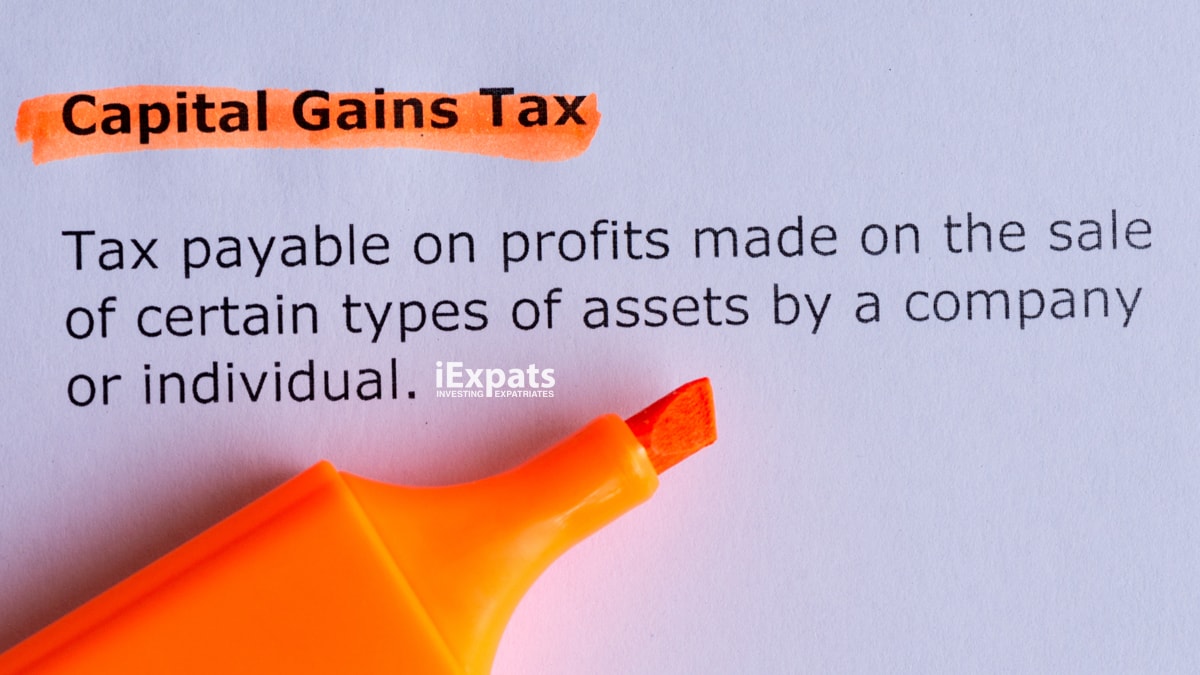Expat landlords and second home owners with property in the UK could become major losers if Chancellor Rishi Sunak overhauls how capital gains tax is paid.
A comprehensive Capital Gains Tax review has landed on his desk from the Office of Tax Simplification that proposes slicing the annual exempt amount and aligning CGT tax rates more closely with income tax.
The revamp would raise billions more in tax as part of the Chancellor’s bid to claw back money spent on funding the government’s COVID-19 financial help for businesses and workers.
The OTS report argues CGT rules were ‘counter-intuitive’ and flagged ‘odd incentives’ for some taxpayers.
If the Chancellor adopts the proposals, the main losers would be wealthy investors and savers who own buy to let, second homes and other assets outside ISAs. Owner-directors of small companies shielding cash in their businesses to boost pensions on retirement would also suffer.
What Is Non-Resident Capital Gains Tax?
Capital gains tax is due on the difference between the selling price of an investment, like property or stocks and shares, and the purchase price, less some allowed expenses and tax reliefs.
British expats must pay Non-Resident CGT (NRCGT) on the sale of land or property they own in the UK within 30 days of completing a sale.
Who Pays NRCGT?
You must pay NRCGT if you sell or gift land or property in the UK as:
- A non-UK resident
- A non-resident in a business partnership
- A non-resident landlord
- Non-resident trustees
- A UK resident qualifying for split-year tax treatment for a property disposal during the tax year deemed overseas
- A representative of a deceased non-resident, like an executor of a will.
Find out more about expat wills
What Are The NRCGT Rates?
NRCGT is paid at 18% or 28% on the disposal of homes in the UK, depending on the highest rate that they pay income tax in the UK.
Basic rate taxpayers pay at 18%, while higher rate taxpayers pay at 28%. The median CGT payment is £32,500.
Around 265,000 people and 22,000 trusts a year pay £8.8 billion in CGT, including NRCGT. In comparison, 31 million pay income tax.at a median amount of £5,800.
What The OTS Says About NRCGT Changes
The OTS claims the disparity between income tax and CGT rates lead to ‘distorted’ tax planning by taxpayers trying to pay tax at lower rates by structuring their affairs to pay CGT rather than income tax.
The report also suggests some taxpayers can choose when and how much CGT they pay because they have flexibility in the disposal of property and shares.
“This can mean that they pay proportionately less tax on their overall income and gains than others,” the OTS said.
The annual exempt amount has also come under fire from the OTS.
Like the income tax personal allowance, the annual exempt amount is how much in gains an individual can earn without paying CGT. The current allowance is £12,300 a year.
Distorted Investment Decisions
The OTS explained the annual exempt amount (AEA) distorts investment decisions as people sell property and structure their gains with married partners to reduce the amount of NRCGT they pay.
In the 2017 -18 tax year, 50,000 taxpayers structured their disposals to report net gains just below the AEA threshold.
To cancel this behaviour, the OTS recommends reducing the AEA down to between £2,000 and £4,000 a year.
Another issue the OTS is looking at is incorporating a property business. Companies do not pay CGT or NRCGT but are liable for corporation tax on gains, charged at a 19% rate. Again, this is seen as a way taxpayers can distort the amount of CGT that they pay.
Streamlining the tax system to avoid legal tax avoidance and a greater alignment of tax rates could raise up to £14 billion for the Treasury that would help plug the hole in government finances punched by COVID-19 relief.
Sunak has played down the report, pointing out he has commissioned other tax reviews – into inheritance tax and income tax – without taking up the proposed reforms.
The OTS has not put forward alternative CGT rates or levels for the annual exempt amount.
Boost for retiring holiday let landlords
For expat property investors with holiday lets in the UK, the OTS wants to see business asset disposal relief (BADR) – formerly entrepreneur’s relief – set up to give more relief to retiring business owners who would otherwise pay CGT at higher rates..
The lifetime allowance for BADR was slashed from £10 million to £1 million in March on the recommendation of the OTS, while NRCGT is paid at 10% instead of the higher rates.
Timescale For NRCGT Changes
The Treasury has declined to comment on changing tax policy and confirmed the OTS report would be considered in due course.
“The government’s priority right now is supporting jobs and the economy,” the Treasury added.
If the Chancellor decides to overhaul CGT and NRCGT, the announcement will likely come in next year’s Spring Statement expected in March 2021.
The OTS will publish a second CGT review next year that will cover technical and administrative issues.
Meanwhile, expat landlords planning to sell investment property in the UK might want to consider bringing their plans forward.
Related Information
Below is a list of related articles you may find of interest.
